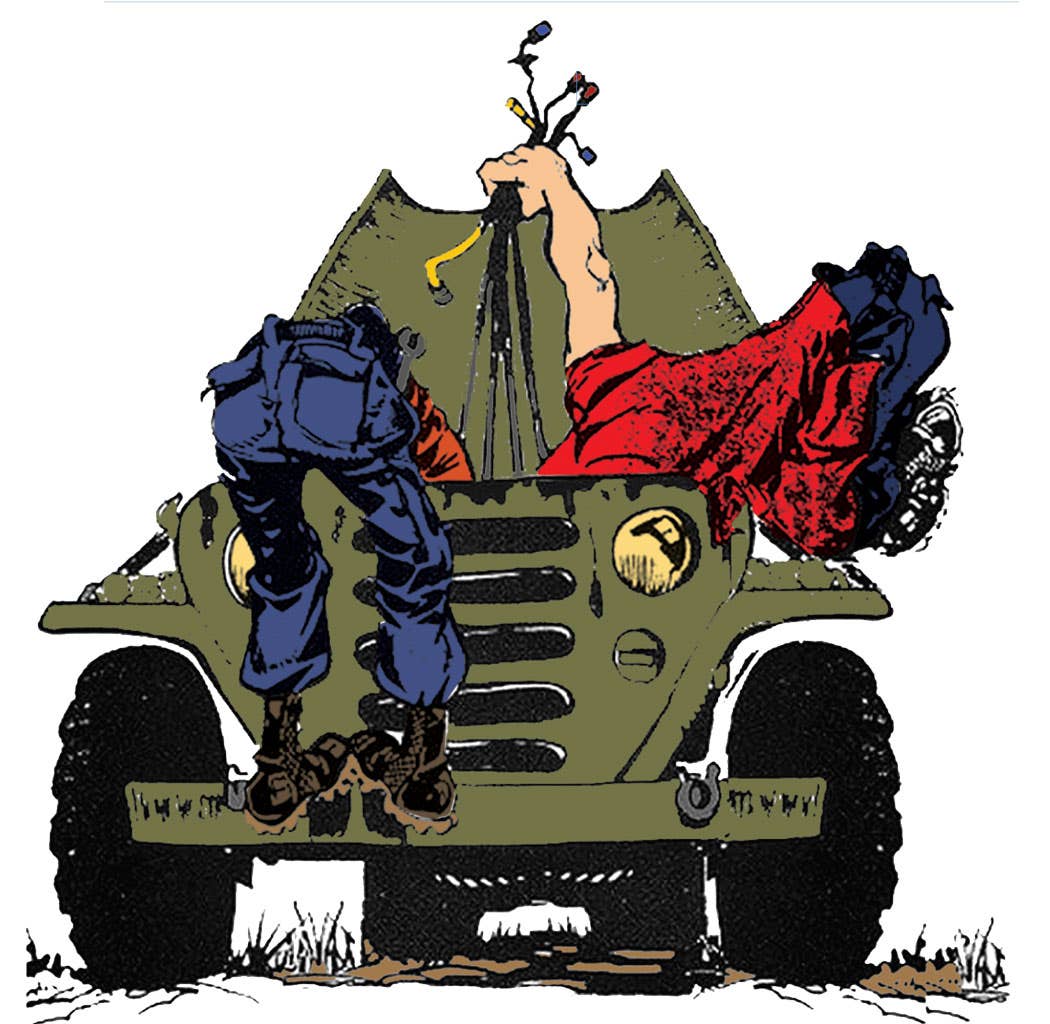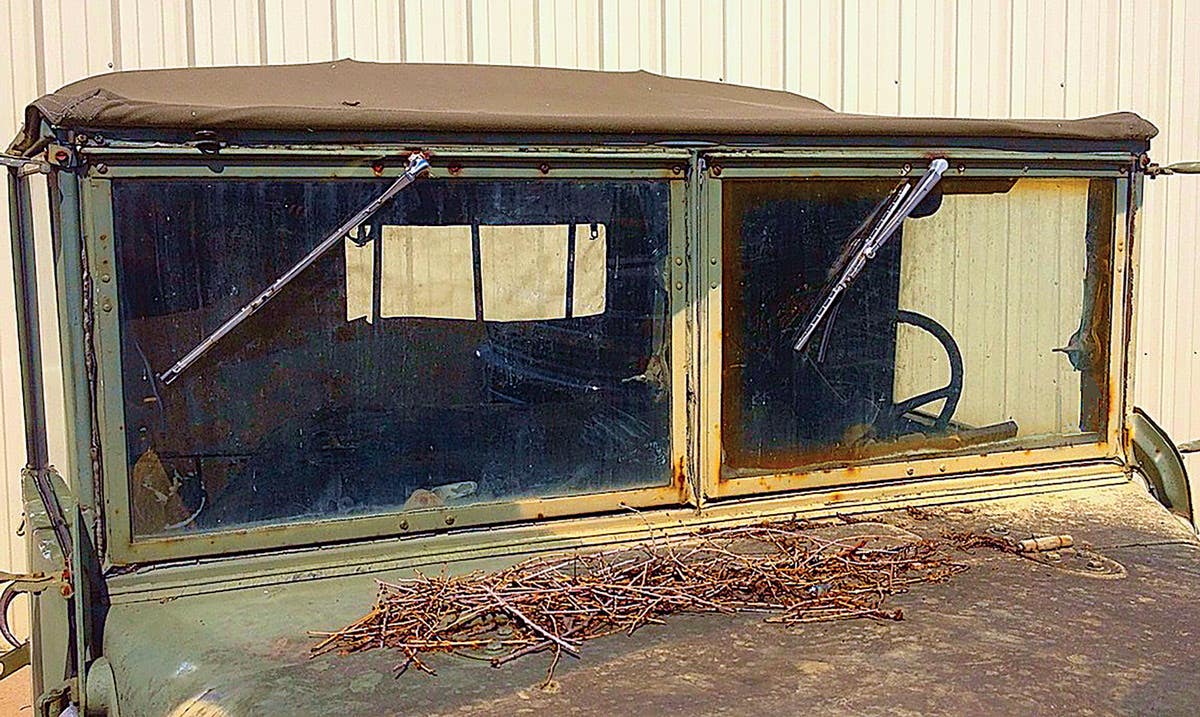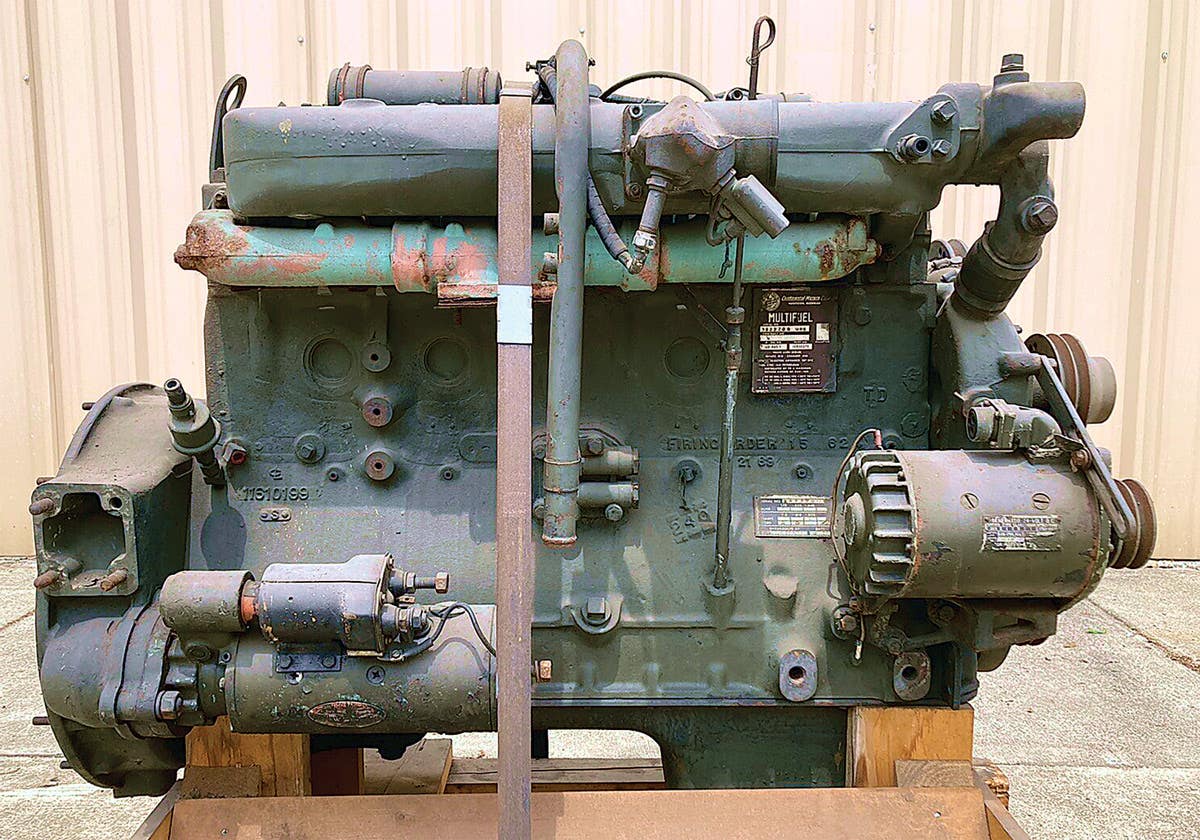AGE IS JUST A NUMBER
In 1946, I bought a 1/2-ton Dodge Carryall. All I knew was how to start it, shift into front wheel drive when needed and how to shift the four-speed transmission.
I am an army truck nut. In 1946, I bought a 1/2-ton Dodge Carryall. All I knew was how to start it, shift into front wheel drive when needed and how to shift the four-speed transmission. Everyone said army trucks were junk. Well, lubricate the junk and it will give good service! I drove that truck 265,000 miles and rebuilt the flathead engine four times.
The Schenectady, NY general depot had a retail store every other Monday, One time, they had .040 oversize Dodge pistons for $1.00 each, packed six in a box. I bought six boxes for $36. I should have bought every box...look at today’s prices! I rebuilt a 1941 Dodge closed-cab pickup in 1991 so I could go on the Alaska Highway 50th Anniversary trip. I drove 10,300 miles from Albany, NY to Edmonton, Alberta, to Fairbanks, Alaska and return. Used two quarts of oil for the whole trip.
My question is about 6- and 12-volt ignition coils. I sold Mack trucks for 23 years so I met a lot of mechanics. I got a Delco-Remy 12-volt coil off an LJ Mack with a 707 cid. gas engine. It was a heavy-duty coil with cooling fins. The electrical system specialist said I should put a resistor in the coil primary wire so only six volts were fed to the distributor points. Chrysler used have a white ceramic resistor (available at NAPA stores), so I got one and have 25,000 miles on the truck and everything is OK. So, if six volts is correct, wasn’t it wired into the original coil?
I’m working on a GMC CCKW and the 6-volt coil has printed on it, “used without external resistor.” So it’s six volts, why would you need a resistor?
The reason I’m working on the GMC is a complete quitting of the ignition system and stopping after driving a quarter mile to my back field. So I took a 12-volt coil off an International school bus out back, which must have a resistor to put 6 volts across the points. Out comes the distributor, I put in new points and it runs like new. So, Steve, does a 12-volt coil have a resistance putting 6 volts to the points? A 6-volt coil doesn’t need a resistor. Please tell us about coils.
I enjoy your articles. We certainly learn a lot buying used vehicles. I worked in logging camp in Maine. I met a lot of dumb people on the road, as well as some great mechanics “back in the woods.” and have a lot of stories from when I served on a 1918 submarine in WWII.
—John Kolanchick
Thank you for your kind works about my writing. It sounds like you keep very busy with all your MV projects. I drove my 1966 M37 to Alaska and back in 1977. It was a great trip!
I’ll try to give you some basic information about ignition coils. 6-volt coils usually don’t use resistors. Some 12-volt coils use external resistors in the primary wire (the wire from the ignition switch) of the type you described. The purpose of the resistor is to lower the primary input voltage from twelve volts down to around six to eight volts. However, there is usually another wire or circuit that delivers a full twelve volts to the coil when the starter is cranking. This is because the electrical system voltage usually drops to about eight volts in a 12-volt system when the starter is being used. Most 12-volts coils actually operate at six to eight volts. There are basically two types of 12-volt coils: one type is used with an external resistor, and one isn’t. You didn’t mention if your GMC had a 6- or a 12-volt ignition system. If it is 6-volts, then you were probably able to get away with using the 12-volt coil off the school bus because you aren’t using a resistor. However, since most 12-volt coils actually operate at about six to eight volts, the coil is probably not getting all the power it really needs... especially when the starter is cranking. I’d suggest installing a 6-volt coil.
Thank you again for writing, and keep enjoying your vehicles! P.S. I’d love to hear your submarine stories! Of course, since the magazine is about military vehicles, maybe you have some more vehicle tales to share?







